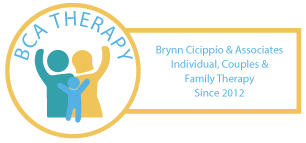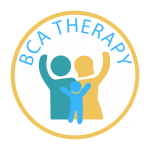
Mental Health during the Holiday Season
These are supposed to be happy times during the holiday seasons. Between everything that may be going on holiday parties, family get togethers, vacations, and celebrating the new year. The holidays can be full of joy, but they can also be stressful and challenging for those impacted by mental health, devastation, or loss of a loved one.
According to NAMI, “You are not alone”, as a 2021 survey showed that three in five Americans feel the holidays negatively impacted their mental health [1].
So, what are ways that we can care for our self during the holiday seasons?
Here are some tips to prevent holiday stress and depression:
- Take care of yourself. This can be done through self-care and forming healthy habits. For example, going on a walk, doing yoga, going to the gym, watching a movie, reading a book or something that can help you feel less worried and take your mind off a stressful environment and help you boost your mental health and deal with stressful activities.
- Ask for help. Talk with a therapist or make plans with a trusted individual, best friend that you can trust, or a trusted family member. Asking for help is not a weakness, it shows that you are strong and have the courage to do so you matter. If you are sad, anxious, depressed, stresses please don’t be afraid to ask for help. BCA Therapy has therapists in Wayne and Yardley that can help you today!
- Focus on what you can control. Don’t worry about things that are out of your control. If something is bothering, you that is out of your control quit worrying about it and thinking about it, there is nothing you can do about it. This will help you relieve a lot of stress and help you focus on what is in your control.
- Avoid drugs and alcohol. Just because everyone around you is drinking doesn’t mean you have too as well. If someone offers you a drink and you don’t want to drink say “NO”. It is important to set boundaries for the holiday season no matter who is around. By avoiding drugs and alcohol you avoid an increase in depression, anxiety, and other mental health issues.
- Identify holiday triggers. Triggers could be people, places, and things that remind you of past trauma or upsetting events. Examples of holiday triggers could be traumatic memories, a narcissist family member, a loss of a loved one, stressful family relationships, or emotional breakups. To avoid holiday triggers put a plan in place ahead of the holidays to avoid these emotional holiday triggers. These plans can put a plan in place to avoid those triggers and help you reduce holiday related stress.
Source:
[1] Mental Health During the Holidays: 8 Tips That Can Help | NU
Learn More

How to Prepare Your Mental Health As You Transition to College
If you are heading to college with a diagnosed mental health condition, you are not the only one. Many new students are in therapy, take medications, receive support services through college, private tutors, guidance counselors, or other agencies. Planning ahead for your mental health and academic support needs will make your transition to college healthier, easier, and more comfortable. Know the steps to prepare your mental health before stepping onto a college campus can help you so much.
- Time management– College can be more demanding than high school, plan to devote more time to your studies. Plan out your days and create a routine that you stick to every week. Having an assignment book to mark important assignments and tests can make your experience of college so much easier.
- Socializing– It can be fun to meet your roommate(s) and others on the floor in your building. Just remember that some people thrive on social interaction while others may struggle with that, so be kind to one another.
- Independence– Now that you’re on your own, you may feel the need to test your limits. Don’t make bad decisions based on peer pressure. Say “NO” to things you don’t want to do. Setting boundaries is very important and do not let people step over your boundaries and respect other people’s boundaries.
- Resources– Be sure to use to familiarize yourself with the resources on college campus. Consider joining a student organization and being involved. There is also learning assistance and resource centers, and student health services and counseling centers that can assist you if needed.
- Stress– Being aware that some amount of stress and anxiety is normal. You are in a setting with new people and new challenges. You can do this!

Sources:
Family Matters: Making the Transition to College – West Chester University (wcupa.edu)
Planning Ahead for Your Mental Health Care as You Transition to College | The Jed Foundation
Learn More
